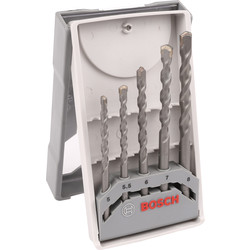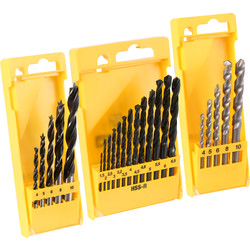- Joined
- 8 Jul 2023
- Messages
- 46
- Reaction score
- 0
- Country

Please keep in mind, I am just a notch above a basic at home diy person. So if you're asking yourself, "who doesn't know this?", the answer is people like me. 
I have had a Bosch PSB 850-2 RE impact drill for about 9 years. I have always used the same type of drill bits I had always been used to with a straight shank, even once or twice with a masonry bit. Now I'm having to buy a masonry drill bit again in a size I don't currently have and I'm finding that there are different shanks I had never even heard of! So, have I been doing this wrong forever? Do I need all these other kinds of shanks for a masonry bit or is it just that now there are new drills designed to grab onto the shanks of bits differently?
I will say one thing that this does make me think of though... that frequently when I drilled into masonry, I'd find that if I set the drill to impact it would get to a point where the chuck would stop spinning. And I'd have to go the regular torque setting to have it work again and ultimately to get the hole drilled much more slowly.
Anyway, can someone help straighten me out on this stuff?
I have had a Bosch PSB 850-2 RE impact drill for about 9 years. I have always used the same type of drill bits I had always been used to with a straight shank, even once or twice with a masonry bit. Now I'm having to buy a masonry drill bit again in a size I don't currently have and I'm finding that there are different shanks I had never even heard of! So, have I been doing this wrong forever? Do I need all these other kinds of shanks for a masonry bit or is it just that now there are new drills designed to grab onto the shanks of bits differently?
I will say one thing that this does make me think of though... that frequently when I drilled into masonry, I'd find that if I set the drill to impact it would get to a point where the chuck would stop spinning. And I'd have to go the regular torque setting to have it work again and ultimately to get the hole drilled much more slowly.
Anyway, can someone help straighten me out on this stuff?


